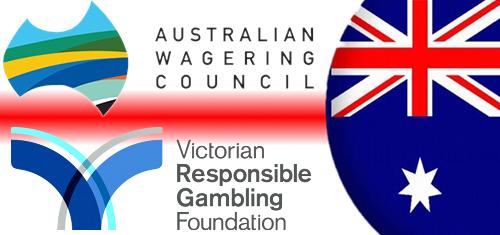 The Australian Wagering Council is celebrating the release of a new gambling study that pokes holes in the theory that there’s been an ‘explosion’ in sports betting and problem gambling behavior related to betting.
The Australian Wagering Council is celebrating the release of a new gambling study that pokes holes in the theory that there’s been an ‘explosion’ in sports betting and problem gambling behavior related to betting.
This week saw the release of the Study of Gambling and Health in Victoria, a government-funded survey conducted by Schottler Consulting. The 300-page study, the first to examine gambling behavior in the state since 2008, involved a telephone survey of 13,584 Victorian adults, including mobile-only households for the first time.
The study found that overall gambling participation rate in 2014 had fallen nearly five points – from 21.5% to 16.7% – since 2008. The rate of problem gambling among the surveyed participants was unchanged at 0.81%. This latter number was lower in landline-only adults ((0.72%) than in mobile-only respondents (1.07%).
The most notable decline in gambling participation was at the state’s ubiquitous video poker (pokies) machines, with 15.2% of Victorian adults playing at least once in 2014, down from 21.5% in 2008 and 33.5% in 2003. The study notes that this decline supports the theory that gamblers “adapt to the novelty of gaming opportunities over time.”
More Victorian adults were betting on sports and events in 2014, although the figure was up only 1.15 points from 2008 to 5.11% in 2014. More than half (52%) of sports bettors admitted to wagering online, compared to those who wagered at TAB outlets (44.9%), pubs or hotels (24.5%), by telephone (8.5%) or in clubs (7.9%) and at racetracks (6.8%).
The internet figure is significantly more than the 22.4% reported in 2008, but this is in keeping with general internet trends. In March, Roy Morgan Research reported that the number of Aussies who’d made an online purchase in 2014 had risen nearly 50% from 2011.
The Victorian study also notes that changes in question wording – from ‘sports and events’ wagering in 2008 to purely sports betting in 2014 – means the changes “should be considered only indicative.”
Race betting participation was up 3.7 points to 20.1%. Race betting is now evenly balanced in terms of gender participation, as female participation rose more than eight points to 20.2%, while the rate of males betting on races was essentially flat. The study suggests this gender shift is due in part to the inclusion of Spring Racing in the 2014 definition of racing, but also to the “increasing feminization of wagering.”
AWC CEO Ian Fletcher said the study indicated that while sports betting was indeed on the rise, “that growth is slow” and sports bets still account for only 3% of the country’s total gambling expenditure. Fletcher noted that if one listened to sports betting critics, “you’d be forgiven for thinking sports betting has overtaken the pokies, which still account for more than half of Australians’ gambling spend.”
Australia is currently conducting a review of its online gambling laws and a major war is being waged between those who wish to relax restrictions on in-play online sports betting and those who believe the status quo is just fine.
PROBLEM GAMBLERS HAVE LOTS OF OTHER PROBLEMS
The Victoria study found that non-problem gamblers’ online betting activity doubled to 45.6% in 2014, while low-risk gamblers tripled their rate to 56.8% and moderate-risk gamblers more than doubled to 69.8%. However, those Victorians designated as full-blown problem gamblers showed no sign of increased online sports betting activity.
Supporting the growing body of research suggesting that problem gamblers have problems handling a great many things, the Victorian study found that low-risk and moderate-risk gamblers were “significantly more likely” to consume alcohol while gambling than non-problem gamblers. Nearly one-third of full-blown problem gamblers were found to be at risk for or demonstrating significant clinical alcohol abuse.
Problem gamblers in Victoria were also found to be significantly more likely to be diagnosed with depression (41.9%) and anxiety disorders (39.5%) than were non-problem gamblers.
